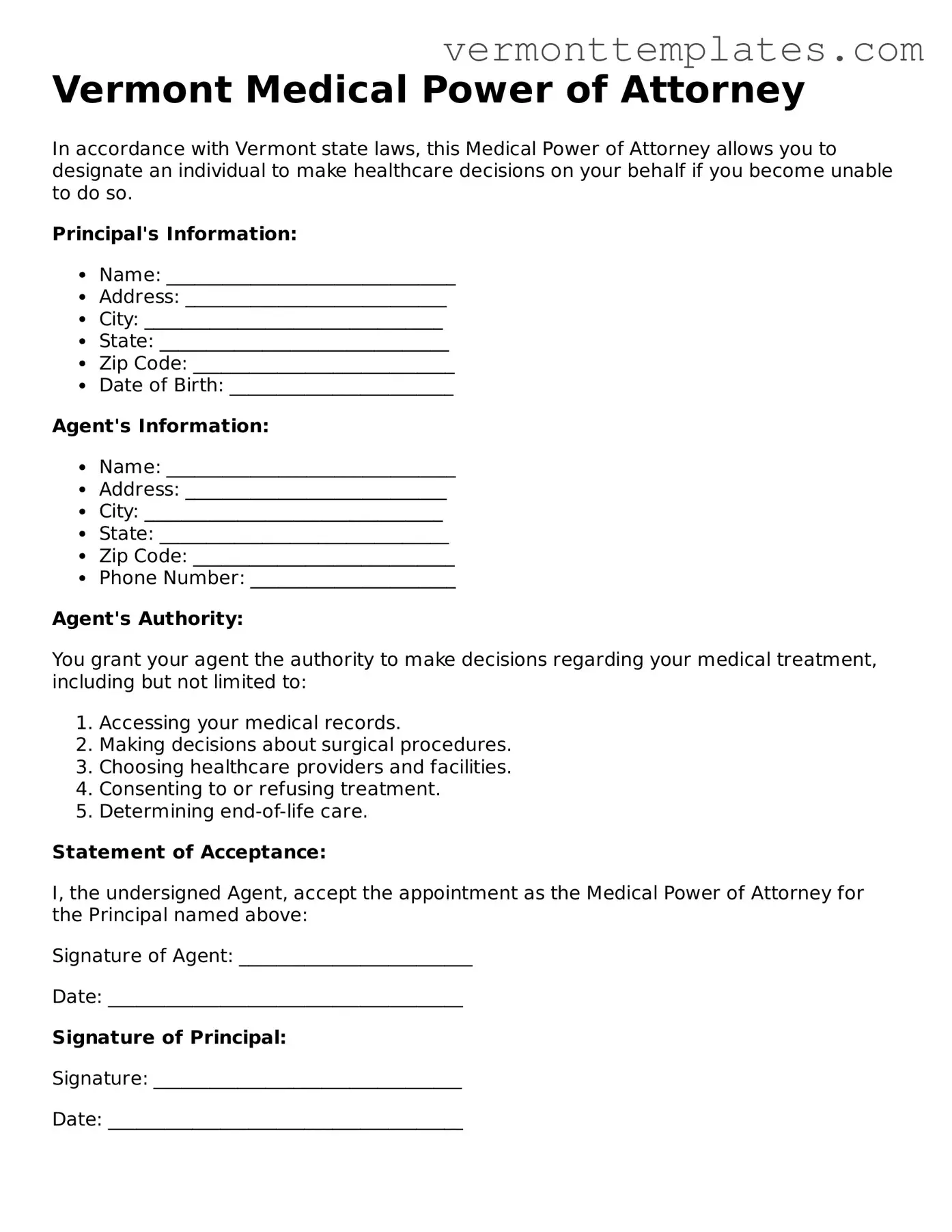The Vermont Medical Power of Attorney (MPOA) is similar to the Durable Power of Attorney (DPOA). Both documents allow individuals to designate someone to make decisions on their behalf. While the MPOA specifically focuses on medical decisions, the DPOA covers a broader range of financial and legal matters. This means that if someone is unable to make decisions due to illness or incapacity, their appointed agent can step in, whether it’s for healthcare choices or managing financial affairs.
Another document akin to the MPOA is the Living Will. A Living Will outlines a person's wishes regarding medical treatment in situations where they cannot communicate their preferences. This document complements the MPOA by providing clarity on the types of medical interventions a person does or does not want. When combined, these documents ensure that healthcare decisions align with an individual’s values and desires, even when they cannot express them directly.
The Healthcare Proxy is also similar to the MPOA. This document specifically appoints an individual to make healthcare decisions on behalf of someone else. While the MPOA can include broader powers related to medical care, a Healthcare Proxy focuses solely on health-related choices. This distinction can be important for individuals who want to limit the authority of their appointed agent to medical matters only.
The Advance Directive shares similarities with the MPOA as well. An Advance Directive is a general term that encompasses both the Living Will and the Medical Power of Attorney. It serves as a comprehensive guide for healthcare providers and family members about a person's preferences for medical treatment. Like the MPOA, it aims to ensure that a person's wishes are respected when they cannot communicate them.
For individuals looking to understand critical legal documents, the editable Power of Attorney form is essential for managing one's affairs. This form provides clarity in delegating powers to trusted agents and can guide users through the complexities of handling legal responsibilities. You can access the form and learn more about its application at editable Power of Attorney form details.
The Do Not Resuscitate (DNR) order is another document that parallels the MPOA. A DNR instructs medical personnel not to perform CPR if a person’s heart stops or they stop breathing. While the MPOA allows someone to make decisions about medical treatment, the DNR is a specific directive regarding resuscitation efforts. Together, they provide a clearer picture of an individual’s healthcare preferences.
The Guardianship document is also related to the MPOA. While the MPOA allows someone to make medical decisions, a Guardianship may be necessary when an individual can no longer care for themselves. This court-appointed role grants authority over both personal and medical decisions. The MPOA can be part of the considerations when establishing a Guardianship, ensuring that the individual’s healthcare wishes are taken into account.
Lastly, the Mental Health Care Power of Attorney is similar to the MPOA, but it specifically addresses mental health decisions. This document allows a designated person to make decisions regarding mental health treatment when the individual cannot do so themselves. It complements the MPOA by ensuring that mental health care is managed according to the individual’s preferences, especially in situations where they may be unable to advocate for themselves.

